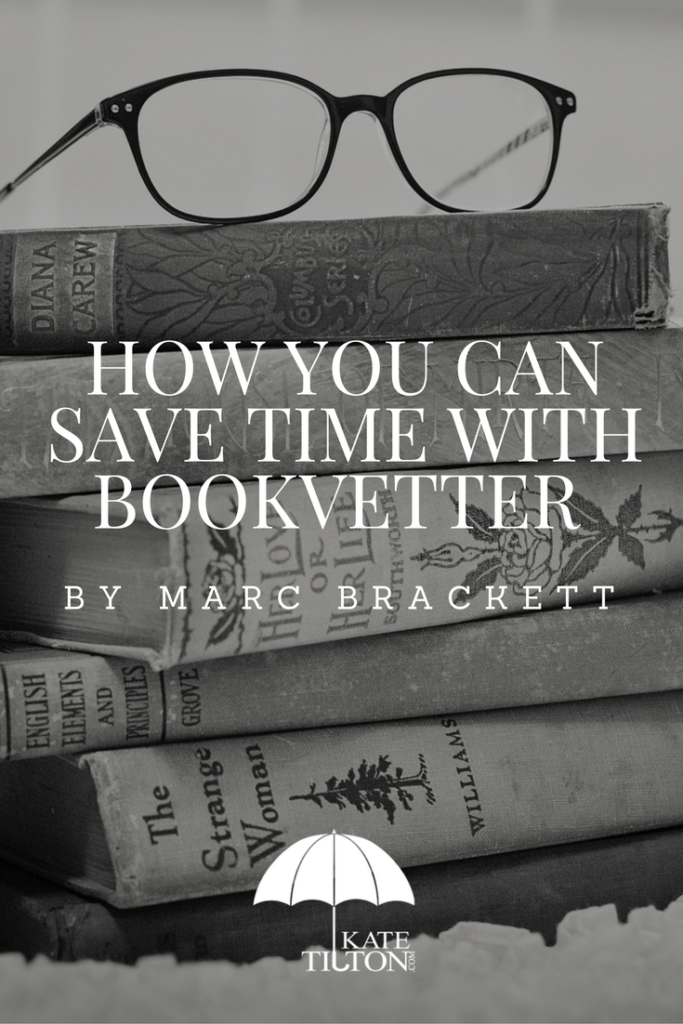
I created Bookvetter after my attempt at being an author. Like so many other authors out there, after completing my book I was greeted with a soul-crushing silence. My numerous attempts at advertising were complete failures and the silence continued, even a negative review would have been appreciated!
So I started contacting book review bloggers and asking for reviews. The silence continued until one day I received an acceptance email. I noticed after receiving one review it became much easier to find other reviewers and I also noticed every time a review was posted my book would see a spike in sales.
While my book was far from a commercial success, the interactions were very rewarding and I came to appreciate book review bloggers as the new gate keepers of literature. However, I also saw a system which was wasting the time and talent of a great many people.
To start with authors need honest and objective feedback on their books. In my case, I had exhausted my friends and family reviewing copies of my rough drafts. While their efforts greatly improved my book, it would have benefited from additional review by individuals with no connection to me.
The second thing I noticed was the huge number of review requests book review bloggers were receiving. In many cases, it consists of substantial amounts of what I call “author spam,” an author who doesn’t bother to read the reviewer’s reading preferences and submits a copied and pasted message to every reviewer they can locate.
In my opinion what was and is needed is a system which filters books for quality, provides authors with honest, objective feedback, and protects the valuable time and talent of book review bloggers. A system which automates many of the mundane tasks but also connects people and books.
The Bookvetter process for authors starts with submitting a book for either a draft review or a published review. The author determines which genre or genres the book fits in, what levels of graphic content the book contains (murder, rape, offensive language, child or animal abuse, profanity, love scenes, same-sex content), and finally the file formats the book is available in.
The system then matches these books with reviewers who are interested in books like this. At this stage, the reviewers are other authors. While every author feels their book is exceptional and ready for the best seller list, this is sadly not the case. The time of book review bloggers is too valuable to waste on books which are not yet ready for a larger audience. So we use anonymous peer reviews to provide the first filter, anonymous in order to avoid review trading or review reprisals. An author-reviewer is free to state an honest opinion about a book without any fear or hope of gaining a positive review in return.
Each review of a book is used to generate a score which will determine whether or not a book achieves vetted status. While an author can see the reviews for their book, only the reviews for vetted books are made public. The objective is to develop authors and improve books, not shame or dampen the creative spirit. We have created a process map which shows the steps for authors in greater detail.
The vetted books can then be offered to the book review blogger community for additional review free of charge and without requiring any additional work on the part of the author.
While we offer free vetted books to book review bloggers, we also provide a review request form they can embed into their website or profiles on various social platforms. The review request form compares the content of submitted books to the book review bloggers reading preferences and filters the results. In cases where there is not a match, the author is sent an email informing him/her of the outcome. In cases where a match does occur emails are sent to both the author and reviewer notifying them of the match. The reviewer then decides whether to accept or deny the review request and appropriate emails are sent to the author. We have created a process map which shows the steps for reviewers in greater detail.
The results from the review form have so far been very positive. Nearly 50% of review requests are denied for not matching the reviewers reading interests. Only 2% of these denied review requests are later approved (reviewers can search the denied review requests to see if something was missed), which suggest the process is working. You can check out the review request form here.
Bookvetter is still a very young community and we are either building new features or improving upon existing work. A large number of our best features have come from member suggestions, so we are very grateful for the dedicated members who share our vision. If you are interested, check out the Bookvetter site or you can contact me directly at [email protected], questions, criticism, or comments are always welcome!
Marc


Hey, Marc!
This sounds like a great idea. I see that reviews are posted anonymously so there is no fear of a retaliation review and no chance authors are trading reviews. But I’m just wondering if the reviewers are reading “blind” or do they receive the author’s name with the book they’re reviewing?
Cheers,
Jess
Hi Jess,
Thank you for the question. An author peer reviewer does know the identity of the author whose book they are reviewing. As books have titles and in almost all cases also the name of the author it would be impossible to hide this information.
I think the bigger question is whether or not authors are contacting one another outside of Bookvetter and trying to trade positive reviews. There have been a couple cases where authors have unknowingly reviewed one another’s books. Yet the outcome of these reviews suggest there was no outside contact. It for sure wasn’t a trading of five stars for both sides.
One of the best examples of these peer reviews being honest comes from a comparison of reviews of the same book by the same reviewer on Amazon (a review trading scam) and the review the reviewer provide Bookvetter. I can’t share the name of the party involved or the book due to privacy issues, but the anonymous private review on Bookvetter was much more negative and critical.
I have attached a link to a blog post which explains this story in greater detail. http://bookvetter.blogspot.com/2014/06/the-self-identified-super-authors.html?m=1
I won’t say it is impossible for authors to game the Bookvetter process, but it would be difficult and we do have some safe guards in place to catch dishonest behavior. On the plus side we don’t seem to attract those type of people. Our process requires a commitment and provides no instant gratification. Thanks for the question and if you have more don’t hesitate to ask!
Interesting article, but it does not offer me a clue on how to submit my book to this anonymous vetting. What is the procedure, and what are the costs for this “free” service?
Hi Peter,
Sorry for the extended delay in replying. The process starts with joining and setting up an account. I will attach a link and process map further below.
The service is free. While we are using member feedback to perfect the process we still have more to learn.
If you gave more questions don’t hesitate to ask me.
Marc
http://www.bookvetter.com/public_pages/join.html
http://www.bookvetter.com/public_pages/author_map.html
I’m interested
Hi Roland,
My apologies for the very tardy response. Please use the link below to join. If you have more questions don’t hesitate to ask.
Marc
http://www.bookvetter.com/public_pages/join.html